
Flying Wild

 |
Flying Wild |
 |
First Name · · Last Name
Last Name · · Groups
Groups · · Venues
Venues · · Events
Events · · Entities
Entities · · Submit
Submit · · e-Mail
e-Mail · · Links
Links · · Search
Search |
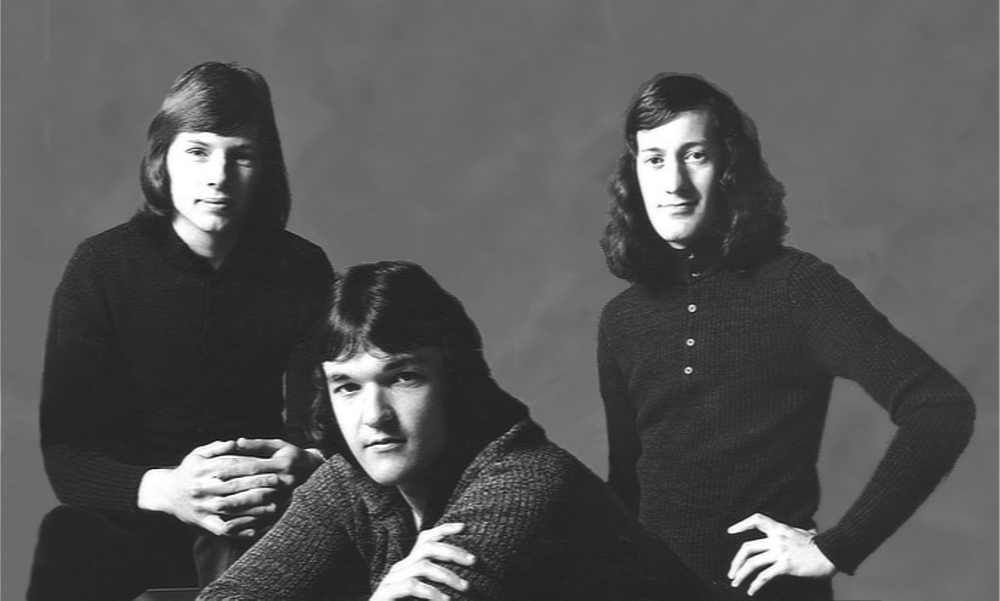 |
 |
  Grant Gillanders Collection |
Flying Wild — circa 1971 |
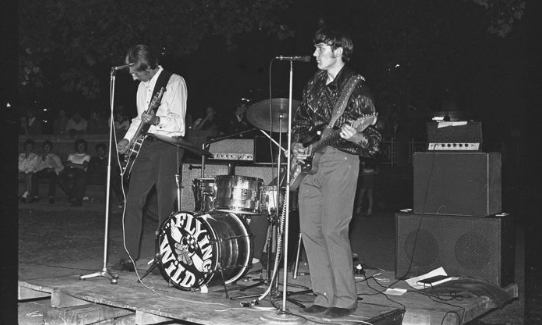
| The annals of New Zealand music rarely, if ever, mention Christchurch group Flying Wild. To the uninitiated they don't exist; to the initiated, they are merely a footnote in the Ragnarok story. They were the first group to be given carte blanche access to Eldred Stebbing's Jervois Road studio, six years before Th' Dudes and Hello Sailor, and while they weren't the first New Zealand act to write their own rock opera, they were the first local band to perform their own opera in public. Their story is unique, as is the career of front man John Fielding. The Flying Wild story began at Christchurch Boy's High School, where students John Fielding, Ross Muir and one other forgotten member formed a band. Fielding recalls: "Ross was a boarder at school, we used to borrow a speaker from his hostel as it was bigger than anything we had. At some stage we put an ad on the notice board at Begg's for a drummer and Andre Jayet turned up. We thought he was as bad as us, and we could all develop from the same level. In the early days we played the songs of The Yardbirds and The Kinks with more enthusiasm than musicianship, but we managed to get regular gigs around Christchurch, Timaru and Ashburton and even backed English comedian Warren Mitchell — aka Alf Garnett from the Till Death Us Do Part TV Series — for a gig at Mt Cook." |
Inspired by The Who's Tommy rock opera in mid 1969, the group wrote a four-act, 24-track, 90-minute rock opera titled Jones: The Birth And Death Of. The performance was based on the traditional Chinese opera with no movement or scenery between songs, and narration between the musical items. They described it as a biographical study of futility and loneliness, in which Jones, a utopian drifter, fights in the Vietnam War and then struggles with his life afterwards. Permission was granted by the Christchurch City Council for the group to perform the opera on the banks of the Avon River, near the Hereford Street bridge. "All I really remember was that it was a beautiful night and it sounded great in amongst the trees on the banks of the Avon," says Fielding. "There were a few noise complaints, so a few council officers arrived halfway through along with the Mayor, so we performed the last half at half volume, which still sounded okay." The group's intention was to find an interested promoter to stage the production and a record label to hopefully record it. The opera was even mentioned in the nationally distributed Playdate magazine, but no one in Christchurch had the ability to market it. Like the central figure in the opera, Jones: The Birth And Death Of died, never to be seen or heard from again. |
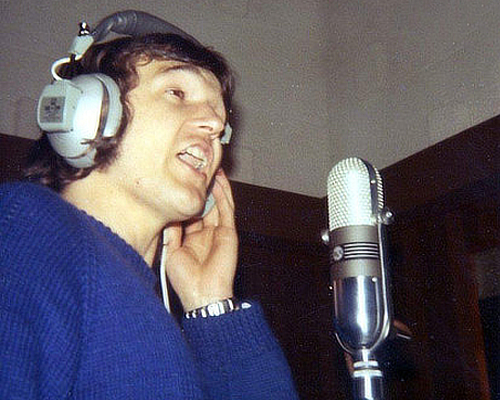 John Fielding in the Stebbings Studio |
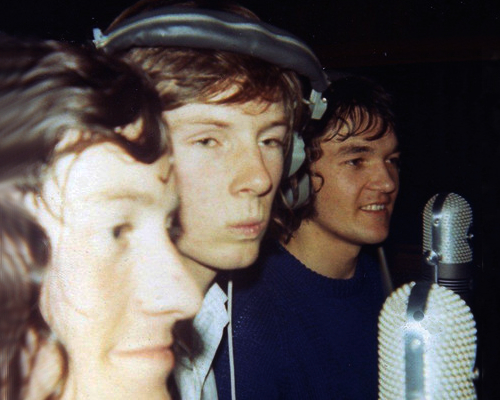 Flying Wild in the Stebbings Studio |
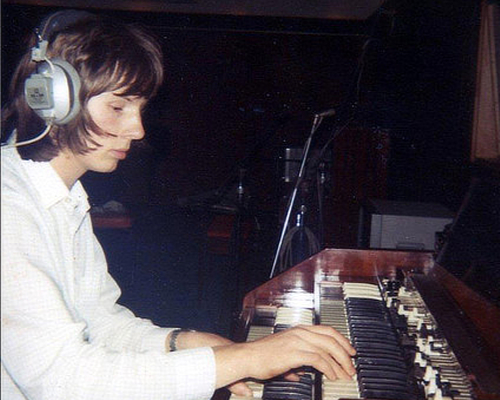 Ross Muir in the Stebbings Studio |
By 1970 Flying Wild was including originals in its act alongside cover versions of The Who and Led Zeppelin and the current hits of the day. The group relocated to Auckland in mid-1971 after receiving encouragement from Lou Clauson (Lou & Simon). Clauson invited them to stay with him until they were set up and, more importantly, introduced the group to Eldred Stebbing of Zodiac Records. Stebbing was impressed with the band and the fact that they wrote their own material and immediately offered them free studio time in his new and recently opened Jervois Road studio. "We actually never signed anything that I can remember," says Fielding. "They just gave us studio time when it was free, basically, and released stuff when we finished anything that we were happy with. They did have plans for an album and for us to be the next big thing in Australia, following in The La De Da's footsteps." The group recorded six songs during its first session with engineer Tony Moan. Help Us Help You — an anti-pollution song — was released in October/November. They had recorded the B-side, Upside Down, as a demo at Robbins Recordings Studio in Christchurch the previous year. The initial Stebbing recording session saw four other tracks recorded: Ride My Pony, I Am, Rosanna and Call My Name, all of which remain unreleased. In a bid for possible commercial success the group released a second single, She's A Devil // Night Child/Home, in April 1972. With its strident guitar sound punctuated with stabbing brass refrains, and a catchy No no no she's not chorus it seemed destined for success but the single quickly sunk without trace. For several reasons, Fielding decided to go to the UK. The band wasn't actually signed to a label, and his parents were heading to the 1972 Olympics in Munich, and they invited him to travel through Europe with them. He sold his gear after a South Island tour, and two days later was on the plane to Europe |
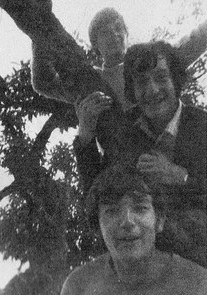 Pop Opera |
The Pretty Things, The Who and The Kinks — what do they have in common with the New Zealand group Flying Wild? Answer: all have created pop operas, Jones, The Birth And Death Of is an ambitious project, a biographical portratit in song. More than an hour long, the New Zealand opera is a study of futility and loneliness. Flying Wild performed extracts from the work in what is believed to be the first open air pop concert in Christchurch. On the banks of the Avon River, a sizeable crowd was entertained by Jones' life story. Most of the songs were penned by lead guitarist John Fielding, although bass guitarist Ross Muir and drummer Andre Jayet contributed some numbers and collaborated on polishing Fielding's material. The group hopes to interest a recording company in the pop opera. S.F. Sorrow, Tommy and Victoria all caused stirs overseas. Who knows but Jones might do the same here? Flying Wild certainly hope so. |
Additional Flying Wild information is available on the Audio Culture Website ..... |
||
|
|